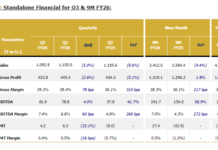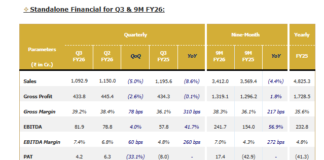Technology Development Board signed the first agreement under the initiative. TDB penned the agreement with M/s Sahi Fab Private Limited, New Delhi for the development & commercialization of ‘Agricultural waste of stem materials like industrial hemp, flax and nettle etc. into Fibre’. The board has pledged a support of ₹1.38 Crores out of the total project cost of ₹2.08 crores.
Industrial Hemp (iHemp) is made up of varieties of Cannabis Sativa that `contain less than 0.3% Tetra Hydro Cannabinol (THC). The small brown seeds (iHemp) contain a rich nutritional food containing protein, fibre and healthy fatty acids, including Omega-3s and Omega-6s that help in reducing symptoms of several diseases, improving the health of the heart, skin and joints.
In addition, the stem holds various properties such as antibacterial properties, and prevention of UV rays owing to its composition consisting of cellulose, hemicellulose, pectin, lignin etc. Whereas, it consumes less amount of water in cultivation as compared to cotton, emits less carbon dioxide, uses less energy and has better carbon sequestration than cotton and polyester fibre. However, due to lack of technology it remained unexploited, despite being a good source of sustainable and environment-friendly fibre and also one of the strongest and most durable natural textile fibres.
Thus, with an aim to create wealth out of unexploited waste, the company has come up with an innovative solution by manufacturing fiber /fibrous products out of this waste in three steps as follows:
- Decortication: The hemp stem is processed through the indigenously developed Decorticator machine.
- Wet Processing: The extracted fiber is treated with alkali/enzymes using high-temperature high-pressure (HTHP) machines.
- Fiber Processing: The treated fiber is individualized through carding and can be processed through different routes, one of them being needle punching (non-woven).
The extracted fiber from the stem will not only contribute to circular economy and but also upsurge the income of the farmers by 7 times approx.
Speaking on the occasion, Shri Rajesh Kumar Pathak, Secretary, TDB said, “TDB has been a forerunner in helping innovative indigenous technologies, aimed at improving the Ease of Living for a common man. Many of startups are venturing into fresh domains, and therefore seek financial assistance to accomplish their endeavors. M/s Sahi Fab is one such start-up which is developing Fibre from agricultural waste that remained unexploited due to lack of technology.”
Source – PIB India












